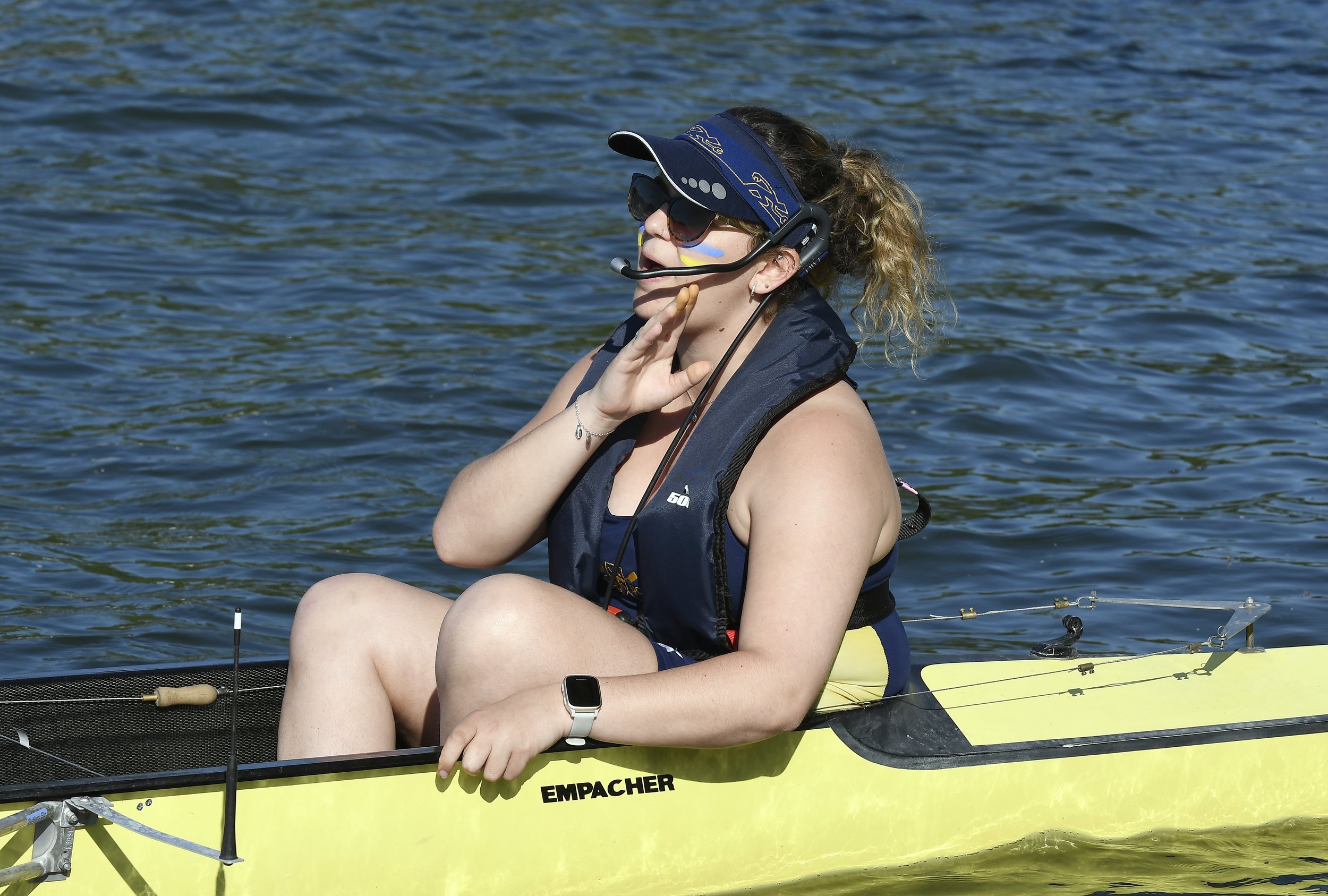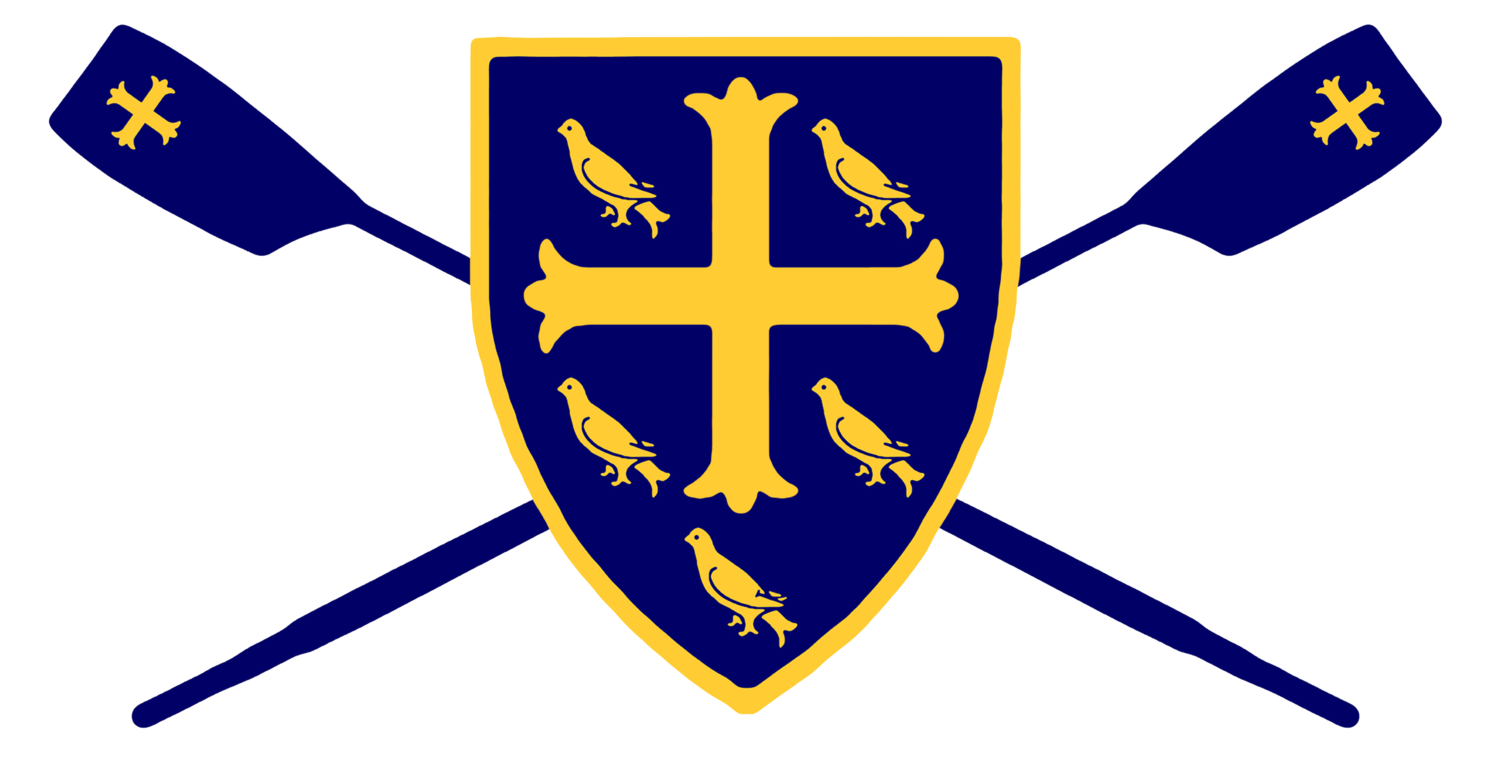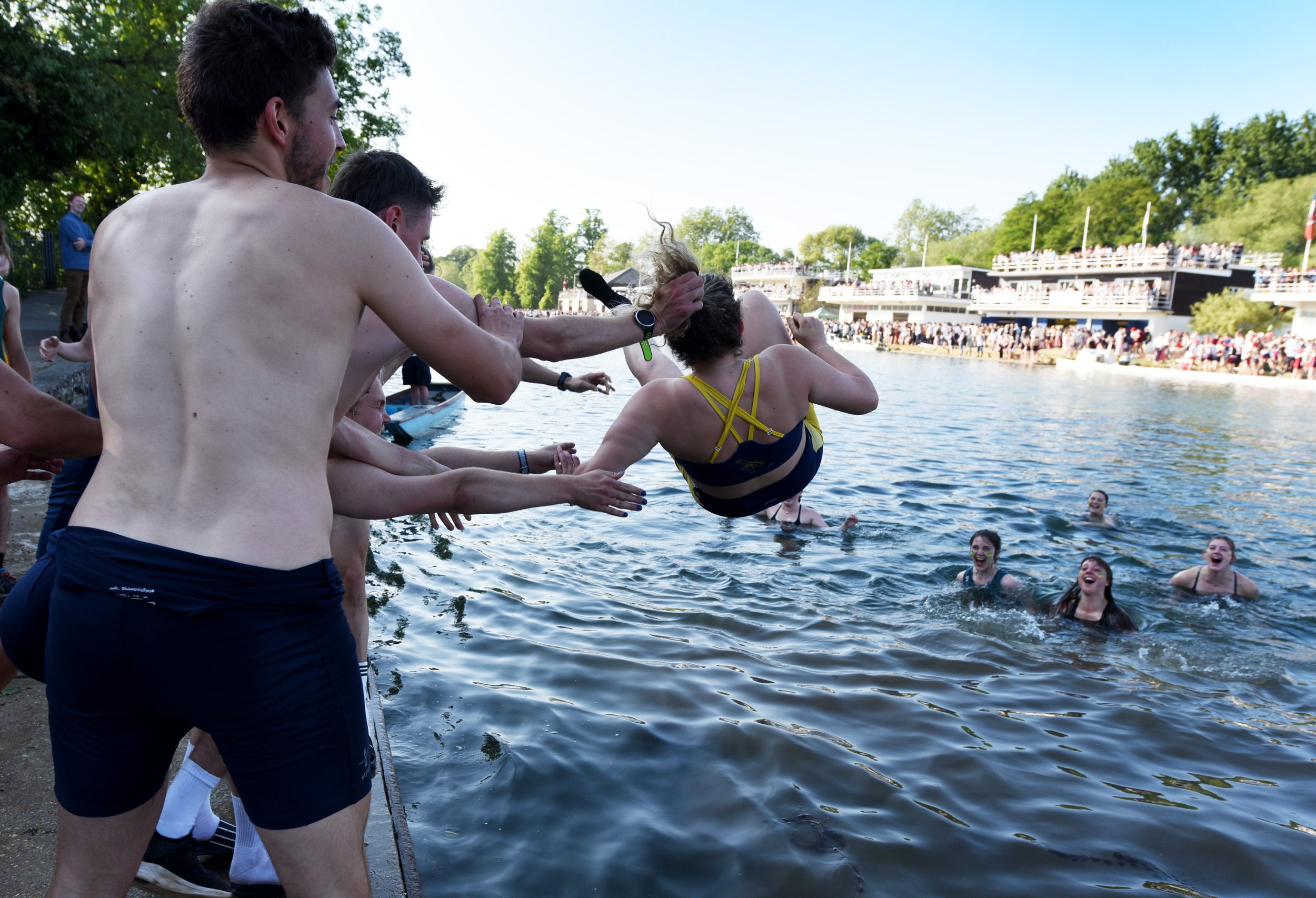
UCBC Coxing
Captain of Coxes Welcome
Hello everyone and welcome to the coxing page! This is the place to go to find out what coxing is and how you can get involved. In a nutshell, the cox is the steerperson and brains of a rowing crew - they steer the boat and are mic’ed up so the rowers all down the boat can hear them. This means that the cox can make calls needed for steering, technical changes and motivation during racing! Read on for a quick intro to coxing at Univ. For more information, contact me directly via email.
- Alex Rigamonti (Captain of Coxes)
Basic Information
The coxswain (cox) is the ninth member of an 'eight' (or the 5th member of a 4), and crucial to the success of a crew. Depending on the boat they sit either at the stern or bow of the boat - but are always facing the direction the boat is going! At a basic level, they steer the boat, and instruct a crew over the course of an outing/race. A good cox is often the difference between winning and losing a race, with picking the correct 'line' through the river, and giving their rowers good advice on pacing and technique deciding many close contests. We are always on the lookout for new coxes, so if you're interested please get in contact with our captain of coxes.
To cox a boat in Oxford, you need to attend a “coxing briefing”. This is a virtual meeting carried out on a weekday evening a few times at the start of each term which runs through the rules of the river - for example, traffic is meant to stick to
one side of the river and there are certain places where you are allowed to turn your boat around. It also contains tips on steering and coxing in general and is run by one of the senior members of the Oxford rowing community. You will also need to be swim-tested before your 5th outing.
Your first few outings will be with senior rowers who basically know what they are doing, and you will also have a coach or bank rider keeping an eye out. The senior rowers will free you up to focus on steering and help you make calls whilst you get familiar with the river. Only novice coxes and rowers can compete in the traditional end-of-Michaelmas novice racing, so after a few weeks of learning the ropes with senior rowers you will switch into a boat of novice rowers - who by this point will have had a few weeks of rowing experience.
Coxing Responsibilites
-
Safety
First are foremost, the cox is responsible for the safety of all the athletes involved in the boat, and the safety of river users around them. The coach/bank rider also has responsibility, but as the eyes in the boat you are invaluable. As per OURCs recommendation, the minimum coxing safety standards include being able to make a risk assessment before each outing, dressing appropriately for outings, having a plan of action in the event of a capsize, knowing what to do in the event of a collision or emergency in the boat, and knowing how to report and incident. These standards and more will be discussed in the coxing briefing carried out at the start of term.
-
Steering & Manoeuvres
Novice rowers and coxes are often surprised to learn that, while coxes can reply on pressure steering from the rowers, they also steer the boat by controlling the rudder. When steering or conducting a manoeuvre (such as ‘spinning’) the cox must also be familiar with the rules of the river. For example, novice coxes are not permitted to go through ‘the gut’ of the Isis, and no cox is permitted to overtake another boat in the gut. There are also specific places on the river where boats can spin. See the OURCs website for in-depth material on steering, the rules of the river, and general coxing information.
-
Coaching
As you become more experienced, you will be able to spot technical rowing issues and call for individual or crew changes to improve the boat. You will also be in charge of calling drills, exercises or race pieces that your coach would like the crew to complete. You are not expected to know all of these drills when you start coxing and your coach/senior rowers will explain them. It is useful if you remember them between outings though! It is also helpful to be familiar of basic rowing terminology before your first outing, see the ‘coxing for beginners’ document.
The Isis Map
Courtesy of OURCs
Coxes on the Isis must be familiar with the names of landmarks on the Isis. This ensures straightforward communication between the cox, the rowers, and the bank rider (for instance, the bank rider might say ‘spin at longbridges’, ‘go through the gut’, or ask you to tell the rowers to do a certain exercise ‘after Donnington (Donny) Bridge’).



